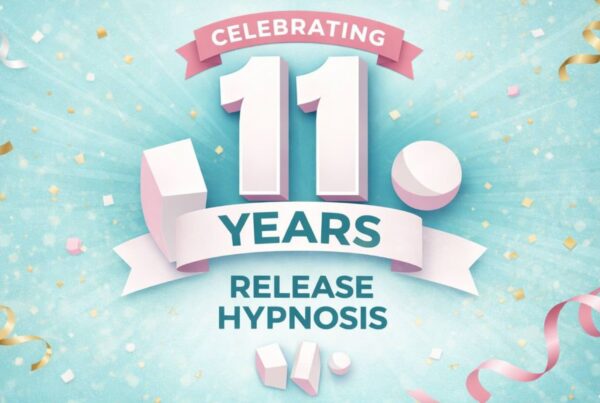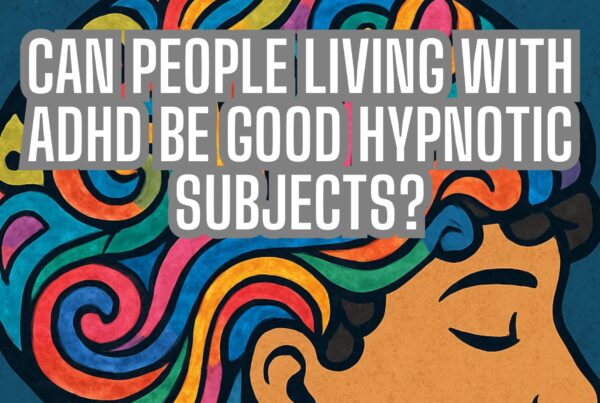Understanding Hypnosis as a Process
Demystifying Hypnosis: Exploring its True Nature
A certain allure surrounds hypnosis, often enveloped in a fog of mystery and misconceptions related to enigmatic rituals and mind control. The real question is, what constitutes hypnosis? Does it refer to a state of mind or a journey embarked upon? Understanding hypnosis as a process will help to shed light on its dynamic nature, moving beyond the misconception of a static mental state.
Unraveling the Illusion of the Hypnotic Trance
The popular narrative of hypnosis paints a picture of a subject plunged into a profound trance, helpless under the hypnotist’s commands. This depiction couldn’t be more misleading. Extensive research underscores the fact that hypnosis isn’t about forfeiting control or slipping into a modified state of consciousness. On the contrary, it represents an engaging dialogue involving the active participation of the individual undergoing hypnosis (Kirsch, 1996).
The Transformative Potential of Suggestion
At the core of hypnosis lies the potency of suggestion. Through adroit guidance, a hypnotherapist can usher individuals into the realms of their subconscious mind, housing beliefs, habits, and emotions. Utilizing delicately constructed suggestions, the hypnotherapist can influence and restructure these deep-seated patterns, paving the way for clients to implement positive life changes. Renowned psychologist Dr. Irving Kirsch substantiated the efficacy of suggestion within hypnosis in a thorough meta-analysis spanning 18 studies, revealing hypnosis as significantly more beneficial than a placebo for various conditions, ranging from smoking cessation to anxiety disorders (Kirsch, 1996).
Hypnosis and the Perception of Time: An Enthralling Phenomenon
In the midst of a hypnosis session, subjects often recount an altered perception of time. Minutes may seem like hours, while hours may flit by in mere moments. This intriguing phenomenon doesn’t signify a trance state but reflects the intense concentration and heightened suggestibility hypnosis fosters. Picture hypnosis as immersing oneself in a riveting cinema. As the plot grips you, time seems to evaporate, your awareness of the outside world fading. Similarly, during hypnosis, the person’s focus is drawn into their internal experiences, leading to this peculiar sense of temporal distortion.
The Crucial Contribution of the Subconscious Mind
Understanding hypnosis as a journey calls for acknowledging the substantial role of the subconscious mind. Envision the subconscious mind as an iceberg—the conscious mind being the visible tip above water, while the colossal part remains hidden beneath. Hypnosis enables access to this submerged mass of the subconscious, allowing individuals to explore and address underlying issues influencing their thoughts, behaviors, and emotions. In a groundbreaking study, hypnosis outperformed cognitive-behavioral therapy alone in managing chronic pain conditions, demonstrating its potential to tap into the subconscious mind’s power to alleviate pain and enhance overall well-being (Jensen et al., 2008).
Hypnosis: A Synergistic Endeavor
Contrary to widespread belief, hypnosis isn’t a one-sided endeavor where the hypnotist wields power over the subject. It is, instead, a harmonious collaboration between the hypnotherapist and the individual being hypnotized. Picture the hypnotherapist as a tour guide, aiding the individual in unearthing their inner resources and fostering positive transformation. But, it’s the traveler—the individual—who ultimately chooses the destination and savors the journey’s experiences.
Harnessing the Process of Hypnosis for Sustainable Change
Recognizing hypnosis as a journey allows individuals to play an active role in their transformation. Hypnosis isn’t an enchanting state forced upon someone—it’s a valuable tool that enables individuals to tap into their inherent potential and effectuate positive changes in their lives. A pioneering study revealed that the effects of hypnosis extend beyond immediate benefits. Participants who underwent hypnosis as part of a weight loss program sustained their weight loss even two years post-treatment, underscoring the lasting impact of hypnosis on behavior modification (Bolocofsky et al., 1985).
Embracing Hypnosis: A Path to Personal Discovery
Understanding the interactive essence of hypnosis, the transformative power of suggestion, the subconscious mind’s role, and the harmonious interaction between the hypnotherapist and the individual lets us pierce through the fog surrounding hypnosis, appreciating its potential for positive change. So, embark on the journey of hypnosis and discover the keys to your inner resources.
Release Hypnosis Melbourne Hypnotherapy
Since 2015, Lawrence Akers has been working under the name Release Hypnosis offering Hypnotherapy and ACT based work to the people of Melbourne or an online service. Based on St Kilda Rd, Release Hypnosis is an easy and convenient location to get to and accessible by the ANZAC station train and tram stop. Release Hypnosis can help with a wide range of presenting issues, and I offer a free 30 minute no obligation discovery call for those who are unsure if hypnotherapy is the right way forward for them.
References for ‘Understanding Hypnosis as a Process’
- Kirsch, I. (1996). Hypnotic enhancement of cognitive-behavioral weight loss treatments—Another meta-reanalysis. Journal of Consulting and Clinical Psychology, 64(3), 517–519.
- Jensen, M. P., Barber, J., Romano, J. M., Hanley, M. A., Raichle, K. A., Molton, I. R., … Engel, J. M. (2008). Effects of self-hypnosis training and cognitive restructuring on daily pain intensity and catastrophizing in individuals with multiple sclerosis and chronic pain. Journal of Consulting and Clinical Psychology, 76(3), 518–525.
- Bolocofsky, D. N., Spinler, D., & Coulthard-Morris, L. (1985). Effectiveness of hypnosis as an adjunct to behavioral weight management. Journal of Consulting and Clinical Psychology, 53(4), 579–584.
Book Your FREE 30 Minute Consultation With Release Hypnosis NOW!
You may also like to read:
Discovering Purpose and Values: A Path to Mental Well-being
Can’t Visualise in Hypnosis? Here’s What You Can Do Instead.
Dealing with Financial Stress and Crisis: Finding Peace Amid Turbulence
What Is The Success Rate of Hypnosis?
Release Hypnosis Melbourne Hypnotherapy is accessible for people in: Abbotsford, Armadale, Albert Park, Balwyn, Bentleigh, Black Rock, Box Hill, Brighton, Brunswick, Bulleen, Bundoora, Camberwell, Canterbury, Carnegie, Caulfield, Chadstone, Cheltenham, Clayton, Coburg, Collingwood, Deer Park, Doncaster, Elsternwick, Eltham, Elwood, Epping, Essendon, Fairfield, Fitzroy, Footscray, Glen Iris, Glen Waverley, Glenhuntly, Greensborough, Hampton, Hawthorn, Heidelberg, Highet, Ivanhoe, Kew, Kooyong, Lalor, Laverton, Lower, Plenty, Macleod, Malvern, Middle Park, Moonee Ponds, Melbourne, Moorabbin, Mount Waverley, Murrumbeena, Northcote, Oakleigh, Ormond, Parkville, Pascoe Vale, Port Melbourne, Prahran, Preston, Richmond, Rosana, Sandringham, South Yarra, South Melbourne, Spotswood, St Albans, St Kilda, Surrey Hills, Templestowe, Thornbury, Toorak, Tullamarine, Williamstown, Yarraville, North Melbourne, Windsor, East Melbourne, Melbourne, Melbourne CBD, Melbourne 3004








